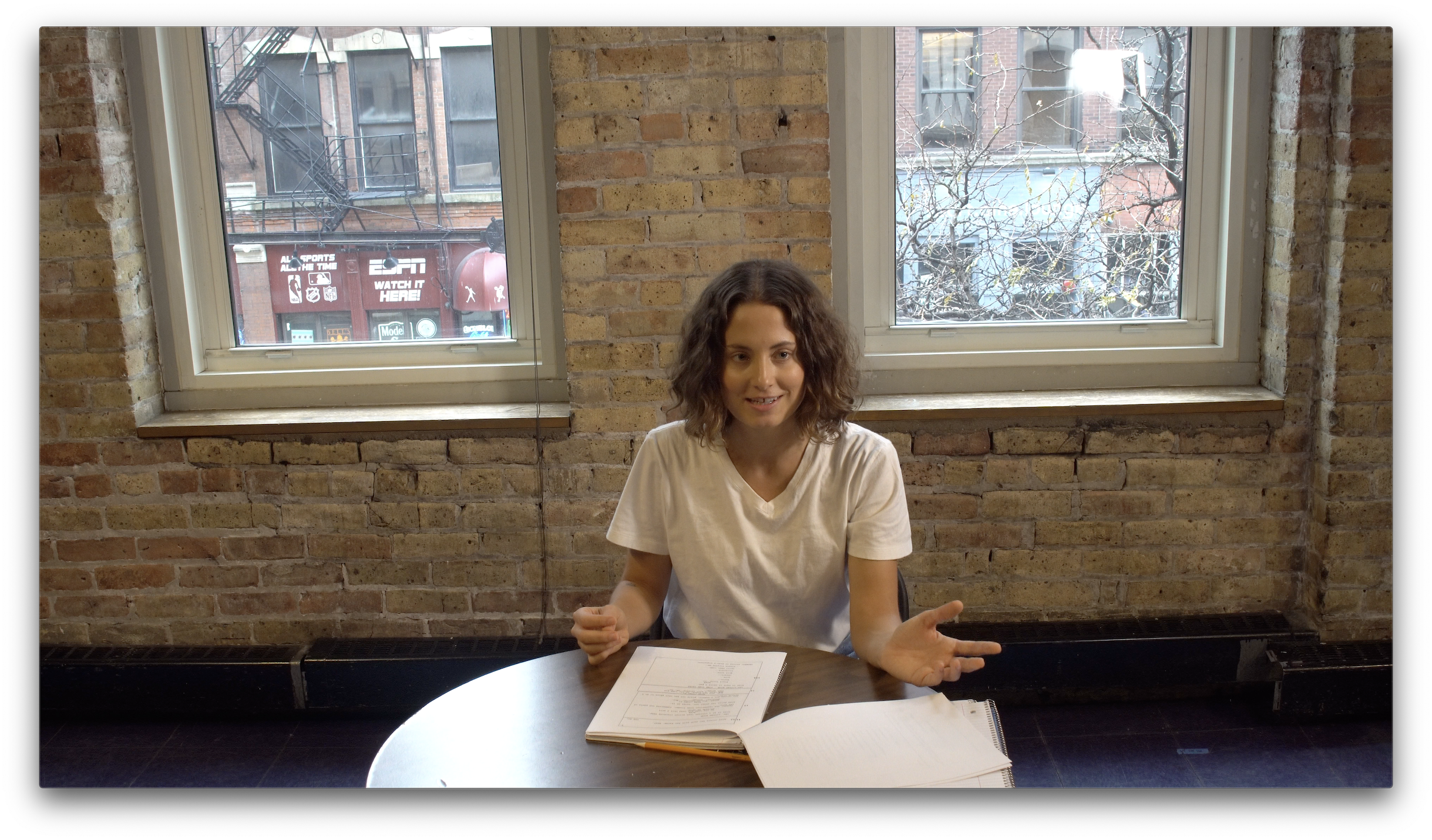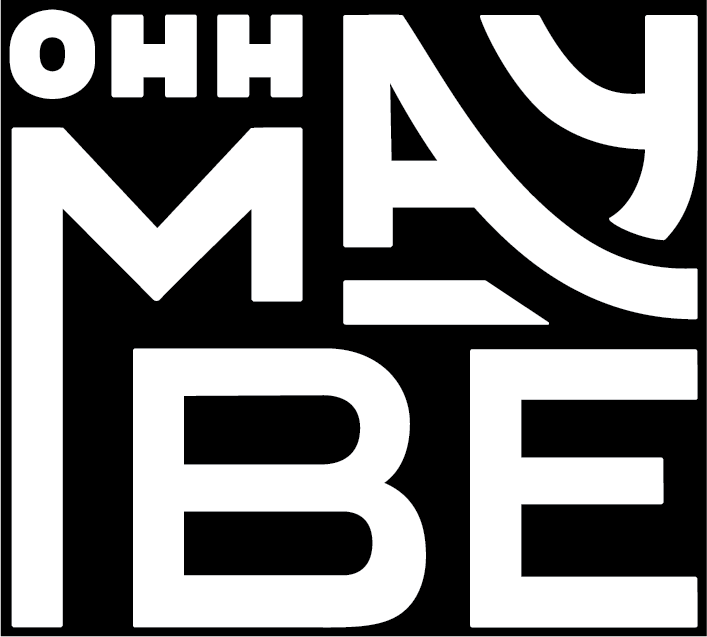By the Time YOU READ THIS
A dark comedy about a perfectionist trying to write a suicide note.
Directors Statement
I was stuck.
Going through my usual struggles of absolute creative inertia. The daily broodings of self-declared and self-pitying insignificance: how whatever I do isn’t enough or worthy of follow through. My mind had a clever way of delivering censorious jabs and rationalizations as to why I don’t deserve to write, express myself, or pursue my dreams.
But then I found a DVD copy of the Duplass Brothers film, The Puffy Chair, from the Chicago Public Library. The movie itself was fine, but it was the special features section which included one of their shorts, “This is John” that lit something up in me. Their short is about John, played by Mark Duplass, trying to set up his voicemail greetings, and having a brilliant pathos filled and progressive meltdown.
One actor, one location, one idea.
I decided to use that as a model to give myself permission to stay focused and simple. And to just effing commit to creating something.
What was bubbling in me at the time were hang-ups around perfectionism, insecurity and dithering inaction. What came out was a story about Alex (played by Katie Bates), a perfectionist, trying to write a suicide note.
I tried to create an elevated context and capture an extremely vulnerable situation to show a character getting derailed by every single possible decision.
My hope is that an audience witnessing Alex’s descent will be able to find humor, poignancy, and a degree of self-recognition in what is typically represented as--and understandably so--an utterly unfunny scenario.
CAST
Alex - Katie Bates
CREW
Written and Realized by Mishu Hilmy
Assistant Director - Das Bleu
Cinematography and Editing by Mishu Hilmy
Production Sound Mixing and Sound Recordist - Bryan Carter
Re-recording mixing and color grading - Post Maybe
Thanks
Julie Medina
Gary Smiley
Acting Studio Chicago
Chicago Film Club
Independent Film Alliance Chicago
Audrey Green
Bradley Powell
Kyle Leland
Aalim Johnson
All the film festival programmers who shared their time to watch this short
I believe—and my production company OHH MAYBE commits to this belief—that cast, crew and productions must be diverse and equitable.
Though this was a tiny two-day schedule, everyone on set from performer to PA was compensated.
As an actor I have experienced the humiliation of more money being spent on props than the living breathing human beings performing. As a production assistant I have spent hours on a set where the filmmaker used his privilege to spend thousands on renting camera gear but could only offer the crew a meal and an IMDB credit. Those memories and experiences are painful (and I imagine, unfortunately, shared by many).
So though I might not experience the benefit of moving fast, producing quick, and expecting free labor like some filmmakers do, I am willing to delay my artistic expression and growth if it means that everyone involved in my projects has the dignity of getting paid a respectful wage for their gifts, talents, and dreams.
Lastly, if the world is to benefit from diverse stories, we must begin by having the benefit of diverse crews. Or to paraphrase Cheryl Dunye’s blunt observation from the Hollywood Reporter’s “Own Your Narrative” summit, we need to keep looking at the other side of the lens to make sure that a set isn’t just “white dudes in shorts.” So I am grateful to say that 100% of the crew for this short were black or filmmakers of color.
DIVERSITY AND EQUITY
Some Technical & Creative Process Notes
“By the Time You Read This” was rehearsed and shot over the course of two days. There was one two hour rehearsal, then the next day a five hour shoot. The ten-page script was shot over the course of those five hours which is a testament to Katie Bates incredible focus, endurance and talent.
The script itself was written and then rewritten over the course of three weeks.
The final short film turned out to be notably different than the shooting script. Originally there was a scene at the end with Katie and two incredible actors, Gary Smiley and Julie Medina, cast as her parents which sort of pathologized the perfectionism. The short was going to have these tidbits of conversation injected intermittently as she writes the note. But in editing the short, it really dawned on me that this wasn’t so much an exploration on why someone would write a suicide letter, but rather should stay focused on the singular idea of a metaphor for perfectionism.
I chose a 4:3 aspect ratio to not only squeeze in on the intensity and claustrophobia of the surrounding, but to have the viewer feel almost as if they are trapped in the mind of Alex. To have them start wondering what sections of the note they too would reject.
The decision to shoot in black and white instead of color was to remove the viewer from the default interpretation of “this is reality.” The richness of color may have distracted and seduced the viewer into taking the experience literally. Visually I wanted to create a grainy and grey Kafkaesque vacuum of paralytic perfectionism. And to have the tones and grades of that grey resemble that of smeared graphite on sheet of paper and its greasy leftovers stuck on the palm of ones hand.
Behind the SCEnes
Katie Bates finding a moment of play during the rehearsal process

Sound recordist Bryan Carter testing levels at rehearsal

Rehearsals took place shortly before COVID-19 lockdowns in downtown Chicago at the Acting Studio Chicago

As rehearsals went on the paper mess got bigger.

Julie Medina and Gary Smiley played the role of Alex's parents. Though their work ultimately wasn't in the final cut of the film they were incredibly generous and vulnerable throughout the process.

Director Mishu Hilmy replacing another pen. Dozens of pens and pencils were destroyed over the course of rehearsal and production.
Land Acknowledgement
All the writing, shooting, and rehearsal of this short film took place in Chicago, which is located on the traditional unceded ancestral lands of the Council of the Three Fires: the Ojibwe, Odawa, and Potawatomi Nations. Additionally, other indigenous communities such as the Miami, Ho-Chunk, Menominee, Sac, and Fox also called this region their home.
Today, Illinois is currently home to more than 75,000 tribal members and the Chicagoland area has one of the largest urban American Indian communities in the United States. Members of this community continue to add to the life of our city and celebrate their legacy, practice traditions, and care for the land.
By making a land acknowledgment, the cast, crew, and filmmakers of OHH MAYBE films recognize that Indigenous peoples are the traditional stewards of the land that we occupy. Their communities lived here long before Chicago was a city and are still thriving here today. As we artists work, live, create and dream on these territories we must ask that we keep trying to correct the historic pains of colonization and state violence, and support Indigenous communities' efforts for self-determination and sovereignty.
Contact
contact@ohhmaybe.com
773-885-5565


